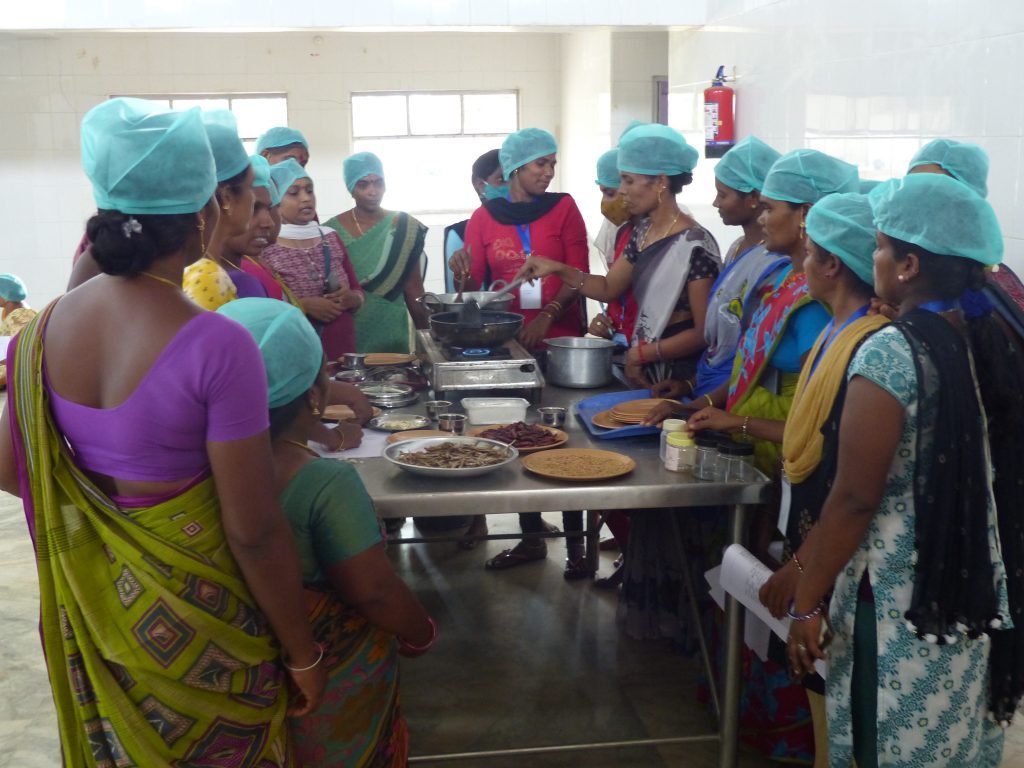It is time to look at fish to achieve food and nutrition security in India
With vast coastal line of 8118 km, India stands second in fish production accounting for 7.56 percent of global production and 1.24 percent of the country’s GVA (Gross Value Added). It is also one of the fastest growing sunrise sectors with over 28 million people depending on fishing for their income and livelihood (1).
Fish, as we all know, is the power house of nutrition with valuable source of protein, fat, vitamins, minerals, essential amino acids and polyunsaturated fatty acids (PUFA). Major nutrients found in fish include vitamin D (supports bone health), vitamin A (reduces the risk of childhood blindness), vitamin B12 (essential for brain and nervous system function), iron (reduces anaemia), zinc (important for the growth and development of children), and calcium (build and maintain strong bones). These nutrients are required for the cognitive development of children, maternal health, foetal growth, immune support, and reduce cardiovascular diseases. Fish also contributes to dietary diversity, and boosts the micronutrient requirement of women belonging to the reproductive age. Aquatic foods – especially the low-cost small indigenous fishes – play a vital role in the first 1000 days of life from conception to the child’s second birthday, as fish consumption reduces stunting and severe malnutrition.
At the same time, Food and Agriculture Organization of the United Nations estimates India to be home to a third of malnourished children in the world, and with the pandemic; the figures are expected to double in the coming years. Also, with increase in population by 2050, we will need to produce 60 per cent more food to feed a world population of about ten billion. However, the United Nations Sustainable Development Goal 2 on Zero Hunger, does not mention fisheries or aquaculture by name, nor does it offer specific guidance on fish production systems. Fish also appear underrepresented in international development funding priorities (2).
Scientists across the world are urging global policymakers and the development community to not only view fish as food, but also to recognise fish as nutrient-rich food that can make a difference in health and well-being of poor and vulnerable populations. This recommendation comes especially with the increased threats from climate change on global food systems (3).
Inland fisheries provide food for billions and livelihood for millions worldwide. In India, a pilot study was conducted to link locally sourced aquatic foods with nutrition policy through the Integrated Child Development Services (ICDS) supplementary nutrition programme in Odisha (4). This is a welcome study towards addressing malnutrition among children, and when scaled up across states, holds the promise of showing positive impact on the nutritional status of women and children in the country.
There is an urgency to look at fish from a food system perspective to broaden the research, policy and development plans while addressing food and nutrition challenges. With a nutrition-sensitive approach inclusive of fisheries and aquaculture, there is expected to be a more sustainable diet systems, plus the added benefit of fishery entrepreneurship that will improve the livelihood and economic conditions of small-scale fishers.

The MSSRF Fish for All Research and Training Centre, Poompuhar, Tamil Nadu, is committed to improve the livelihood of small fishers through post-harvest technological intervention and value addition of small indigenous and underutilised fishes. The Centre has developed innovative ready-to-eat fish-based products that are highly nutritious. Training is also provided to women members of Self-Help Groups (SHGs) and Farmer Producer Organisations (FPOs) in the region on the importance of fish nutrition, quality selection, value-addition, packaging, labelling, and marketing techniques to help small fishers reduce post-harvest losses, and increase availability and consumption of fish-based nutritional products.
References
- https://www.pib.gov.in/PressReleasePage.aspx?PRID=1786303
- Bennett, A., Basurto, X., Virdin, J. et al. Recognize fish as food in policy discourse and development funding. Ambio (2021). https://doi.org/10.1007/s13280-020-01451-4
- Golden, Christopher D; Koehn, J. Zachary et al. Aquatic foods to nourish nations. Nature (London),2021, vol.598(7880), p.315-320
- https://www.worldfishcenter.org/publication/inclusion-dried-small-fish-icds-supplementary-nutrition-programme-pilot-study-odisha

